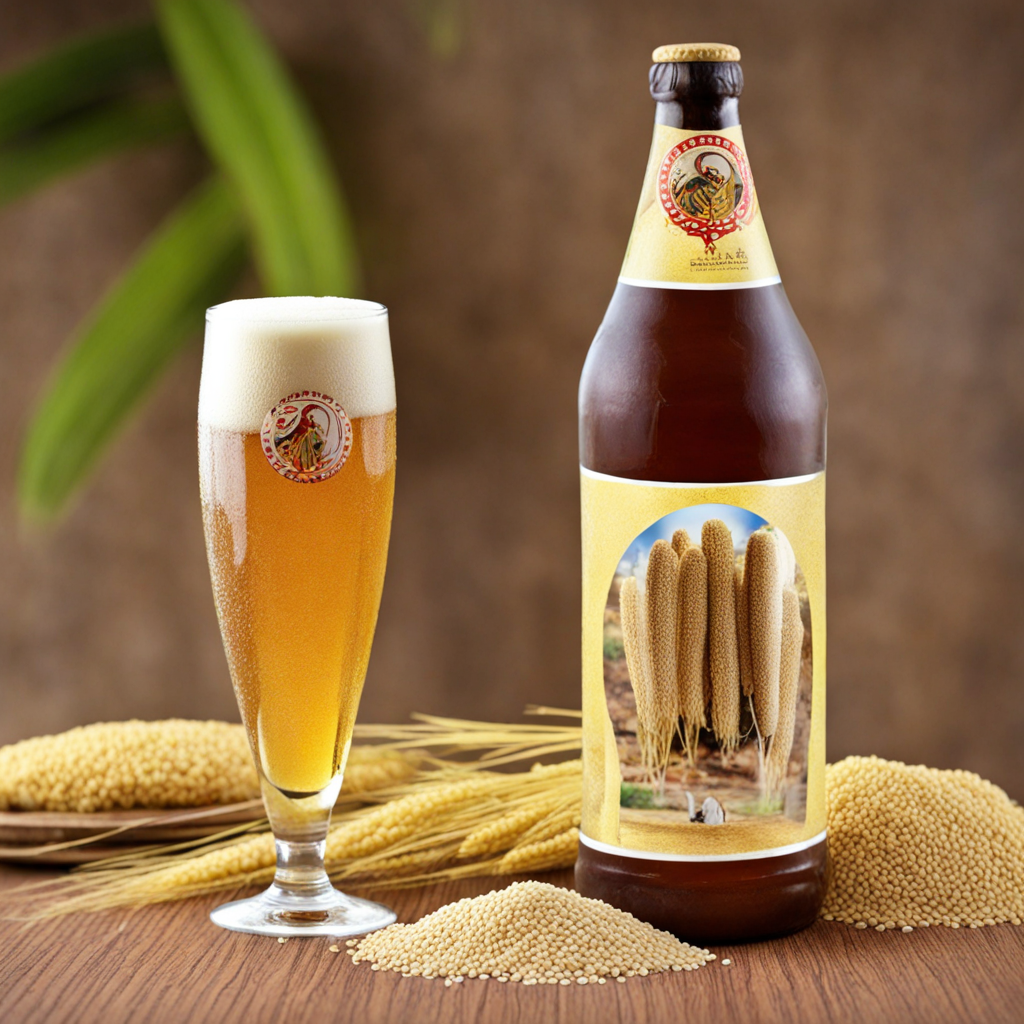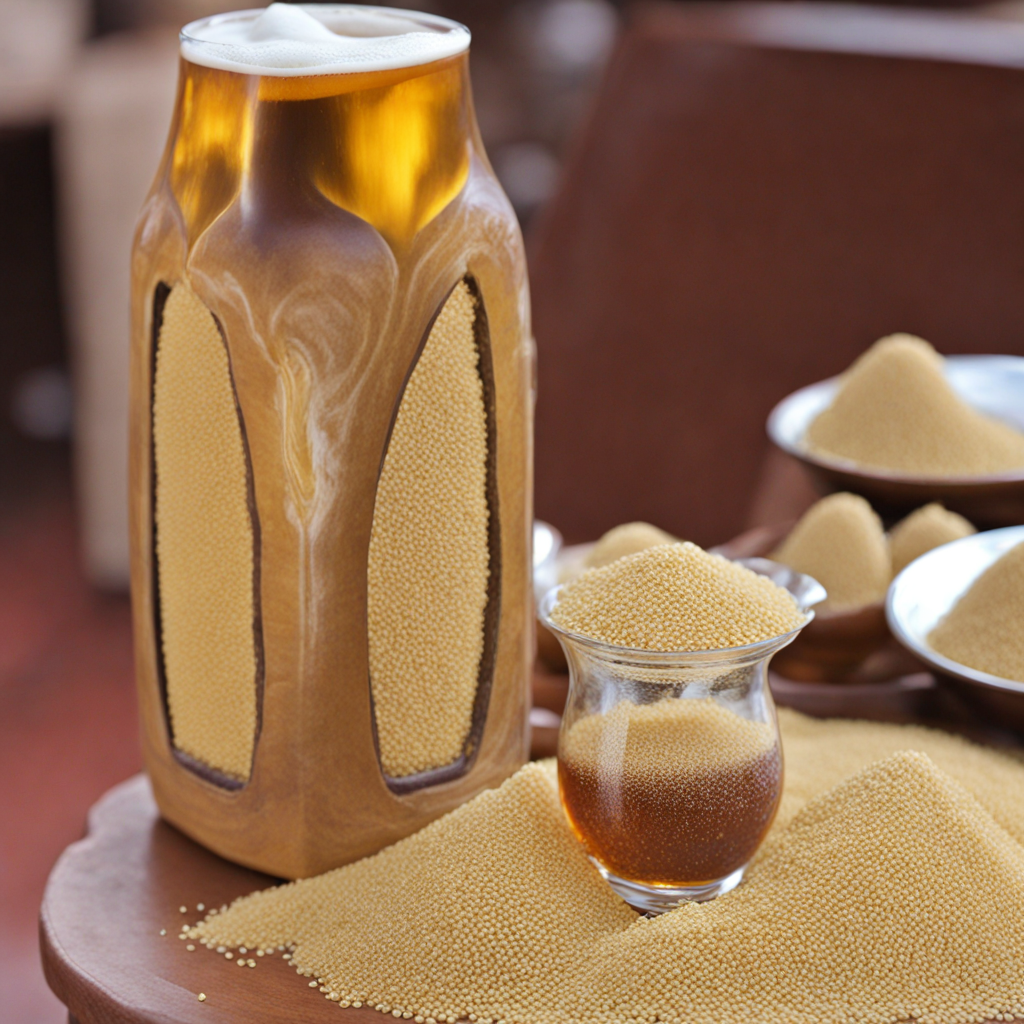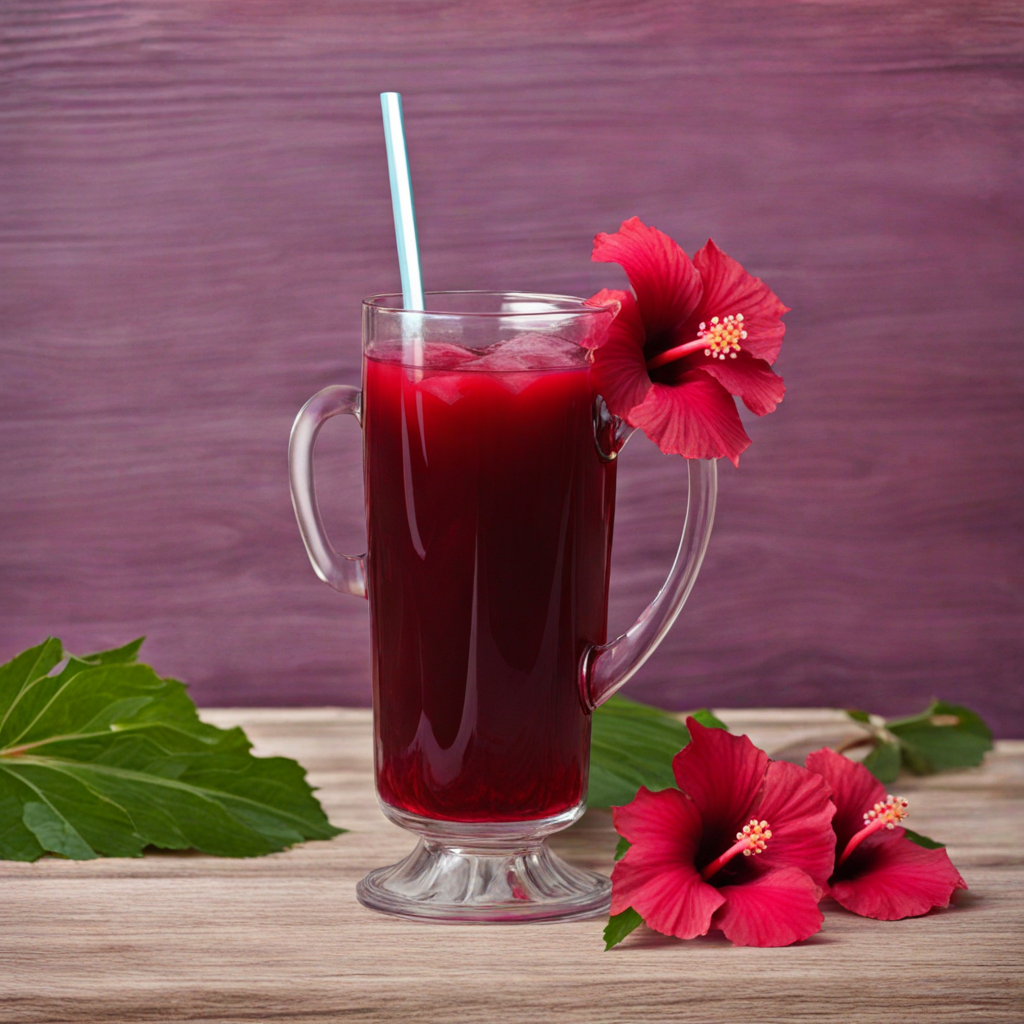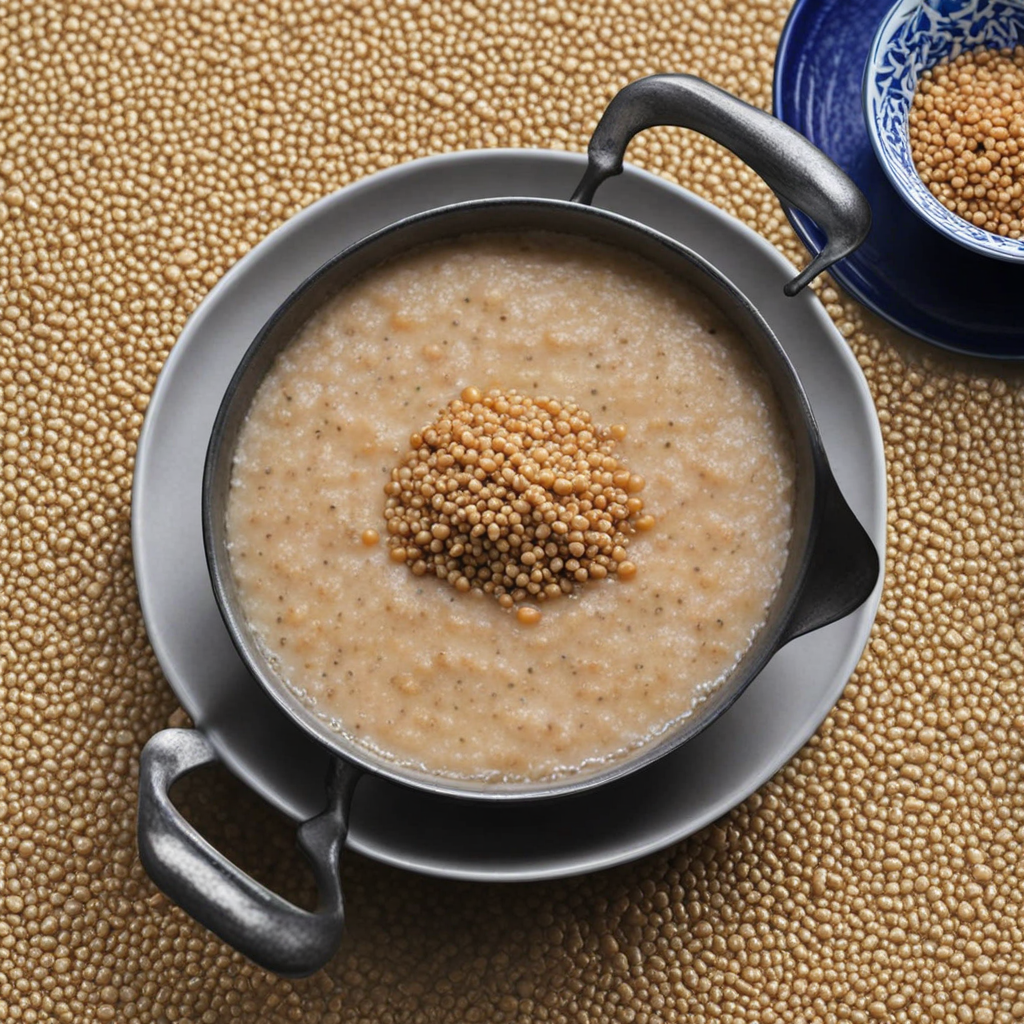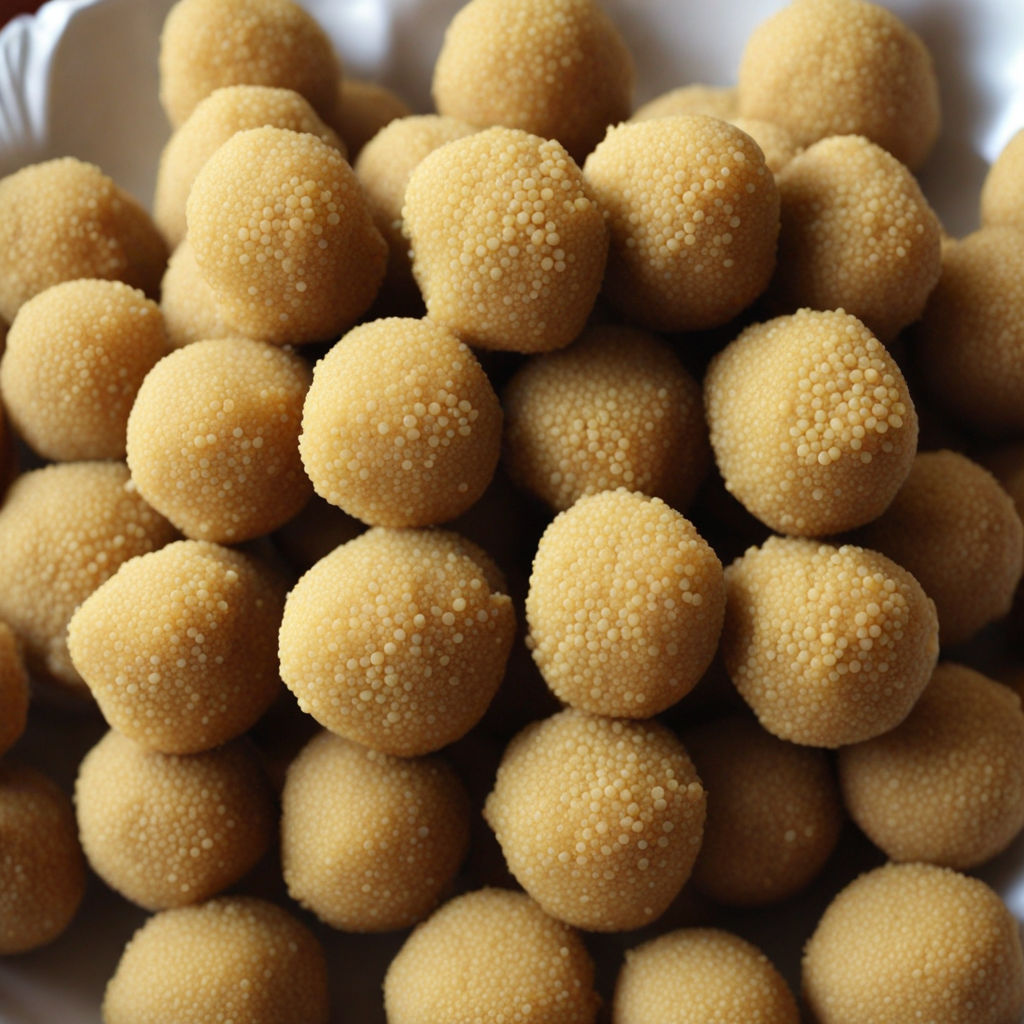Millet Beer
Millet beer, a traditional beverage from Niger, offers a unique taste that reflects the rich cultural heritage of the region. Made primarily from fermented millet grains, this beer has a slightly cloudy appearance, often with a golden hue that hints at its refreshing quality. The brewing process involves soaking and sprouting the millet, which is then mashed and fermented, creating a drink that is both nutritious and invigorating. The flavor profile of millet beer is distinctively earthy and mildly sweet, with a subtle tanginess that can vary depending on the fermentation period and the specific brewing techniques used by local artisans. As you take a sip, you'll notice the light body of the beer, which makes it incredibly refreshing, especially in the warm climate of Niger. The carbonation is gentle, giving it a smooth mouthfeel that invites you to savor each drop. Some versions of millet beer may be infused with additional ingredients such as herbs or spices, enhancing its complexity and providing a rich aromatic experience. This versatility allows for a delightful exploration of flavors, making it a perfect companion for various foods, including spiced stews or grilled meats. Millet beer is not just a beverage; it is a communal experience often enjoyed during gatherings and celebrations. Sipping on this traditional drink connects you to the local culture and the age-old practices of brewing that have been passed down through generations. Whether shared among friends or savored alone, millet beer embodies the spirit of Niger, showcasing the ingenuity of its people in creating a beverage that is as nourishing as it is flavorful, making it an exciting choice for adventurous palates seeking new experiences.
How It Became This Dish
The History of Bière de Mil: Niger's Traditional Brew #### Origins and Ingredients Bière de Mil, a traditional beverage originating from Niger, is a millet-based beer that has deep roots in the Sahelian region of West Africa. The origins of this drink can be traced back to ancient agrarian societies that cultivated millet, a staple crop in the region. Millet’s resilience in arid climates made it an ideal grain for production and consumption, particularly in Niger, where it has been a dietary cornerstone for centuries. The process of making Bière de Mil involves fermenting cooked millet with water, sometimes combined with a small amount of sorghum or corn to enhance flavor and texture. Traditionally, local brewers would use wild yeast and natural fermentation processes, resulting in a slightly cloudy, low-alcohol beverage that is both refreshing and nutritious. This aligns with the traditional West African practice of brewing beer from locally available grains, emphasizing the significance of millet in the region's culinary heritage. #### Cultural Significance Bière de Mil is not merely a beverage; it holds a significant place in the cultural fabric of Nigerien society. It is often brewed for communal gatherings, celebrations, and rites of passage. This beverage is intrinsically linked to social interactions, serving as a medium for hospitality and bonding among friends and family. During important events such as weddings, births, and religious ceremonies, Bière de Mil is served to guests to honor their presence and to foster a sense of community. In traditional Nigerien culture, the act of brewing Bière de Mil is often a female-dominated activity, passed down through generations. The knowledge and techniques of fermentation and brewing are imparted from mother to daughter, thus reinforcing female solidarity and the role of women in preserving cultural practices. The beer is often consumed in a communal setting, where gourds or calabashes are shared, further emphasizing the communal and social aspects of this traditional brew. #### The Brewing Process The brewing process of Bière de Mil is a labor-intensive endeavor steeped in tradition. Initially, millet grains are cleaned and soaked in water. After soaking, they are steamed and left to cool. Once cooled, the grains are ground into a fine flour and mixed with water to create a mash. This mixture is then left to ferment, a process that can take anywhere from several hours to a couple of days, depending on the ambient temperature and the desired potency. After fermentation, the mixture is strained, and the liquid is collected. This liquid, characterized by a slightly sour taste and a creamy texture, is then ready to be served. The final product is often enjoyed chilled, particularly in the hot Nigerien climate, where it provides a welcome respite from the heat. #### Historical Evolution The history of Bière de Mil is reflective of broader historical trends in Niger and the Sahel region. With the introduction of Islam in the 11th century, new cultural practices and dietary restrictions influenced local traditions. While alcohol consumption is generally prohibited in Islamic teachings, traditional millet beer often found a place in non-Islamic communities, demonstrating the complex interplay between religion and culture. In the colonial era of the late 19th and early 20th centuries, Niger experienced significant changes in its agricultural practices and trade systems. The introduction of new crops and methods of brewing, often influenced by European practices, began to affect the production of traditional beverages like Bière de Mil. However, despite these external influences, the traditional methods of brewing remained largely intact, showcasing the resilience of cultural practices. The post-colonial period saw a resurgence of interest in indigenous foods and beverages as nations across Africa sought to reclaim their cultural identities. In Niger, Bière de Mil became a symbol of national pride and a reminder of the country’s rich agricultural heritage. The beverage has since been embraced not only in rural communities but also in urban settings, where it is often found at local bars and restaurants. #### Contemporary Significance Today, Bière de Mil is experiencing a renaissance, fueled by a growing interest in local and traditional foods. As Niger faces challenges such as climate change and economic shifts, the cultivation of millet has gained renewed importance due to its adaptability and nutritional value. With rising awareness around food sovereignty and the need to support local agriculture, Bière de Mil stands as a testament to the resilience of Nigerien culture. Moreover, as global interest in craft brewing increases, Bière de Mil has begun to attract attention beyond its traditional borders. Some local entrepreneurs and brewers are experimenting with new recipes and marketing strategies to appeal to a broader audience, introducing variations that incorporate modern brewing techniques while still respecting traditional methods. The drink is increasingly featured at cultural festivals and culinary events, where it is celebrated not only as a beverage but as a cultural artifact that tells the story of Niger's history and people. It has also found its way into the diaspora, where Nigeriens living abroad continue to brew and share Bière de Mil, thus preserving their heritage and passing it on to future generations. #### Conclusion Bière de Mil is more than just a drink; it is a reflection of Niger's rich agricultural history, cultural heritage, and social dynamics. From its humble origins as a local brew to its contemporary renaissance, it embodies the resilience of Nigerien culture amidst changing times. As it continues to evolve, Bière de Mil remains a vital part of the communal experience in Niger, linking past traditions with present and future generations. Through every sip, one can taste the history, celebrate community, and honor the land that has sustained its people for centuries.
You may like
Discover local flavors from Niger


